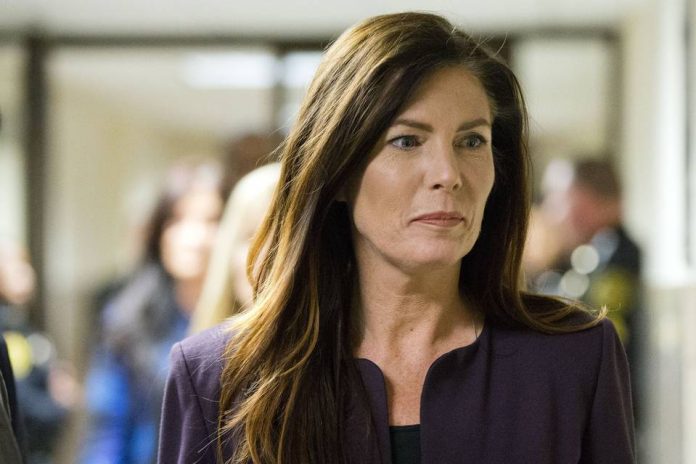Kathleen Kane, once a rising star in state politics, left a courtroom in handcuffs on Monday after getting a 10- to 23-month sentence for a retaliation scheme a judge linked to her all-consuming ego.
The sentence comes two months after Kane was convicted on nine counts, including perjury, obstruction of justice and abuse of office, for illegally leaking secret grand jury information to the Daily News in an act of revenge against former prosecutor Frank Fina. Kane could have faced a maximum sentence of between 14 and 24 years.
Kane had requested probation or house arrest. In a plea for leniency today, she told the court, “I really don’t care what happens to me,” before asking Montgomery County Court of Common Pleas Judge Wendy Demchick-Alloy to consider her 14- and 15-year-old sons in her sentencing.
Kane said the months between her conviction in August and now “have been like a countdown clock to losing my boys,” PennLive reports. Earlier in the day, Kane’s 15-year-old son Chris Kane testified as one of her character witnesses, calling her his “rock.”
But Montgomery County District Attorney Kevin Steele said he had sought to impose as much jail time as possible, claiming she “repeatedly misused her official authority to advance her personal vendettas.”
During the hearing, current and former employees of the Attorney General’s office painted a grim picture when they described working under Kane. During the prosecution’s case, Chief Deputy Attorney General Erik Olsen said that the office was suspect to a “pattern of systemic firings and Nixonian espionage” under Kane, according to The Legal Intelligencer.
Clarke Madden, a former deputy attorney general who also testified, said the climate in the office had become “intolerable,” and that “if [the] building had been on fire it could scarcely have been less comfortable,” The Legal Intelligencer reports.
Kane, who had a once-promising career as the first woman and first Democrat to serve as Attorney General of Pennsylvania, resigned less than 24 hours after her August conviction, one of the most controversial cases of political corruption in modern state history.















